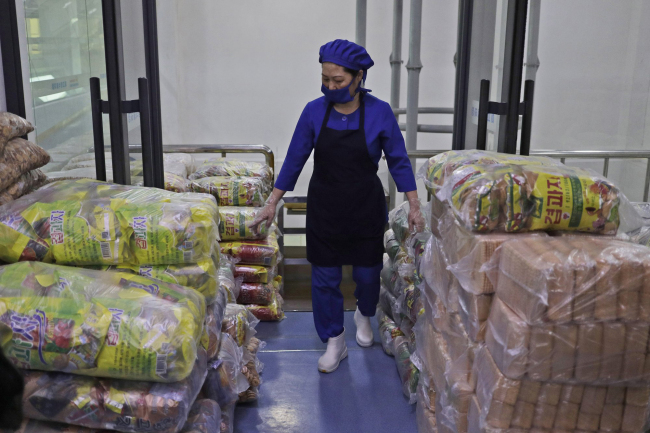North Korea seeks support amid worst food shortage in a decade: IFRC
By Kim Bo-gyungPublished : May 1, 2019 - 19:01
Struck with a severe food shortage due to frequent droughts, North Korea is considering requesting emergency disaster relief, said a report released by the International Federation of Red Cross and Red Crescent Societies.
The IFRC depicted North Korea’s food crisis in detail in a report titled “DPR Korea: Drought and Food Insecurity,” saying, “The DPRK Red Cross Society, with the support of the International Federation of Red Cross and Red Crescent Societies, is considering a Disaster Relief Emergency Fund request.”
The Food and Agriculture Organization and the World Food Program have conducted an assessment of North Korea’s food crisis in response to a request for support from the North Korean government. The findings are to be released next month.
The IFRC depicted North Korea’s food crisis in detail in a report titled “DPR Korea: Drought and Food Insecurity,” saying, “The DPRK Red Cross Society, with the support of the International Federation of Red Cross and Red Crescent Societies, is considering a Disaster Relief Emergency Fund request.”
The Food and Agriculture Organization and the World Food Program have conducted an assessment of North Korea’s food crisis in response to a request for support from the North Korean government. The findings are to be released next month.

“The Democratic People’s Republic of Korea is suffering from droughts that have occurred consecutively in recent years. … Entering 2019, DPRK has experienced unusually erratic weather conditions with little precipitation, limiting available soil moisture for growth of winter crops and planting of spring crops, as well as replenishment of irrigation water reservoirs,” the IFRC added.
North Korea’s dry spell dates back to 2014 and last year the country recorded a food production yield of 4.9 million tons -- a 10-year low -- according to the FAO.
The recent drought is widely expected to exacerbate malnutrition there, posing especially serious health risks for children, pregnant women and the elderly.
According to the 2017 Global Hunger Index, North Korea was classified as a country with a serious hunger problem with about 41 percent of the population, or 10.3 million people, undernourished.
By Kim Bo-gyung (lisakim425@heraldcorp.com)



![[Exclusive] Korean military set to ban iPhones over 'security' concerns](http://res.heraldm.com/phpwas/restmb_idxmake.php?idx=644&simg=/content/image/2024/04/23/20240423050599_0.jpg&u=20240423183955)

![[Graphic News] 77% of young Koreans still financially dependent](http://res.heraldm.com/phpwas/restmb_idxmake.php?idx=644&simg=/content/image/2024/04/22/20240422050762_0.gif&u=)



![[Pressure points] Leggings in public: Fashion statement or social faux pas?](http://res.heraldm.com/phpwas/restmb_idxmake.php?idx=644&simg=/content/image/2024/04/23/20240423050669_0.jpg&u=)









